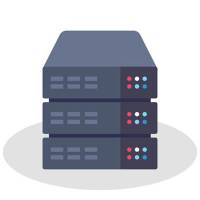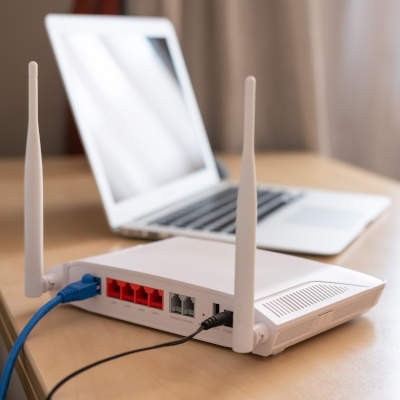SolutionOne Blog
Sometimes you might encounter situations where your network is limited in the amount of data it can process at any given time. The unfortunate truth is that it can be difficult to identify exactly what the problem is that is causing the slowdown, but one of the most common issues—the network bottleneck—is a pretty safe bet. But what exactly is a bottleneck, and what can be done to solve it?
2020 was a contentious—and for the wireless industry, momentous—year. Marking the official start of 5G networks, 2020’s events amongst mobile providers helped to reinvigorate an industry, while making some considerable shifts in the balance. Let’s consider some of these changes, and how the industry will continue to change for some time moving forward as 5G continues to grow.
Data is one of a business’ most important assets, and as such, it needs to be kept in such a way that it remains organized and utilizable. This has led to widespread use of databases in businesses, which has necessitated the use of database management systems. Let’s take a closer look at these systems, and why they are so crucial.
Businesses require a lot of their Internet connections, especially if they’re using technologies like VoIP, screen-sharing, and/or webinar platforms. If you’re looking to incorporate these features, you need to be sure you have enough bandwidth to support them. We’re looking at a few reasons that your bandwidth matters, and how to tell if you have enough for your needs.
 A server is a necessary component of any business’ IT infrastructure, as its job is to make sure that information and policies are distributed the way they need to be across a network. Once, servers had to be on-site in order to work, there is now the option to have a cloud-hosted virtualized server. Which of these is right for your needs? Let’s do a quick comparison to find out.
A server is a necessary component of any business’ IT infrastructure, as its job is to make sure that information and policies are distributed the way they need to be across a network. Once, servers had to be on-site in order to work, there is now the option to have a cloud-hosted virtualized server. Which of these is right for your needs? Let’s do a quick comparison to find out.
 Not all companies are prepared to deal with the costs associated with downtime. Any situation in which your organization cannot access important information or can’t operate with efficiency is something which needs to be prepared for; otherwise, you risk more than you know. We want to help protect your business when it needs it most.
Not all companies are prepared to deal with the costs associated with downtime. Any situation in which your organization cannot access important information or can’t operate with efficiency is something which needs to be prepared for; otherwise, you risk more than you know. We want to help protect your business when it needs it most.
 A network is arguably one of the most important assets that your business has. It keeps your team connected to crucial information and mission-critical applications. This is perhaps why it’s so irritating when your network acts up. You should be on the lookout for even the slightest problem with your network, as even a small change could be a sign of bad things yet to come.
A network is arguably one of the most important assets that your business has. It keeps your team connected to crucial information and mission-critical applications. This is perhaps why it’s so irritating when your network acts up. You should be on the lookout for even the slightest problem with your network, as even a small change could be a sign of bad things yet to come.
 Security is a top priority in today’s business environment, especially following high-profile hacks of notable enterprises. Unfortunately, the fact of the matter is that these hacks could have been prevented if both the employees and employers of these organizations followed strict security best practices for their technology. Thankfully, it doesn’t have to be hard to teach your team how to properly use technology.
Security is a top priority in today’s business environment, especially following high-profile hacks of notable enterprises. Unfortunately, the fact of the matter is that these hacks could have been prevented if both the employees and employers of these organizations followed strict security best practices for their technology. Thankfully, it doesn’t have to be hard to teach your team how to properly use technology.
 When a company is lax about their network security, this can lead to countless threats swarming the network and invading your systems. Yet, sometimes the most dangerous threats come from within. A common issue comes from employees accessing undisclosed files unintentionally and deleting them, which can cause more damage than you think.
When a company is lax about their network security, this can lead to countless threats swarming the network and invading your systems. Yet, sometimes the most dangerous threats come from within. A common issue comes from employees accessing undisclosed files unintentionally and deleting them, which can cause more damage than you think.
 The world’s largest terrestrial vehicle is the German-made bucket-wheel excavator known as “Bagger 293.” Used for open-pit mining, Bagger 293 hulks over the landscape at a length of 722 feet, and a height of 310 feet (twice the size of the Statue of Liberty). As a bonus, this beast-of-a-machine is made more ferocious thanks to remote technology.
The world’s largest terrestrial vehicle is the German-made bucket-wheel excavator known as “Bagger 293.” Used for open-pit mining, Bagger 293 hulks over the landscape at a length of 722 feet, and a height of 310 feet (twice the size of the Statue of Liberty). As a bonus, this beast-of-a-machine is made more ferocious thanks to remote technology.
 There are several factors at work when scoping out your current network security situation. According to a study from 1&1, 67 percent of people confirmed that someone they know has had information stolen from them while online, which means that your business could be next. In order to remain one of the few unaffected by security breaches, consider these three network security features for your business.
There are several factors at work when scoping out your current network security situation. According to a study from 1&1, 67 percent of people confirmed that someone they know has had information stolen from them while online, which means that your business could be next. In order to remain one of the few unaffected by security breaches, consider these three network security features for your business.
 Your company’s network can be very sensitive at times, and even the slightest disruption can cause downtime. Be it an immense natural disaster or something as simple as forgetting your login credentials, it’s common problems which cause the most trouble for businesses. In order to fight against these issues, it’s best to prepare yourself for these three common (and fairly simple) scenarios.
Your company’s network can be very sensitive at times, and even the slightest disruption can cause downtime. Be it an immense natural disaster or something as simple as forgetting your login credentials, it’s common problems which cause the most trouble for businesses. In order to fight against these issues, it’s best to prepare yourself for these three common (and fairly simple) scenarios.
 There’s a value to having a neat and tidy office where everything is where it’s supposed to be. In addition to seeing a boost in productivity because you’re not having to fight clutter, you just feel good about working in a space that’s clean and orderly. These same principles of organization apply to your company’s network.
There’s a value to having a neat and tidy office where everything is where it’s supposed to be. In addition to seeing a boost in productivity because you’re not having to fight clutter, you just feel good about working in a space that’s clean and orderly. These same principles of organization apply to your company’s network.
 As a business owner, you've probably had the misfortune of letting a valued (or not-so-valued) employee go. The reasons might vary, but one thing is consistent: they're gone, and could potentially use their newfound residual malice to strike your business right where it hurts. How can you prepare yourself against former employees you may have once called "family?"
As a business owner, you've probably had the misfortune of letting a valued (or not-so-valued) employee go. The reasons might vary, but one thing is consistent: they're gone, and could potentially use their newfound residual malice to strike your business right where it hurts. How can you prepare yourself against former employees you may have once called "family?"









